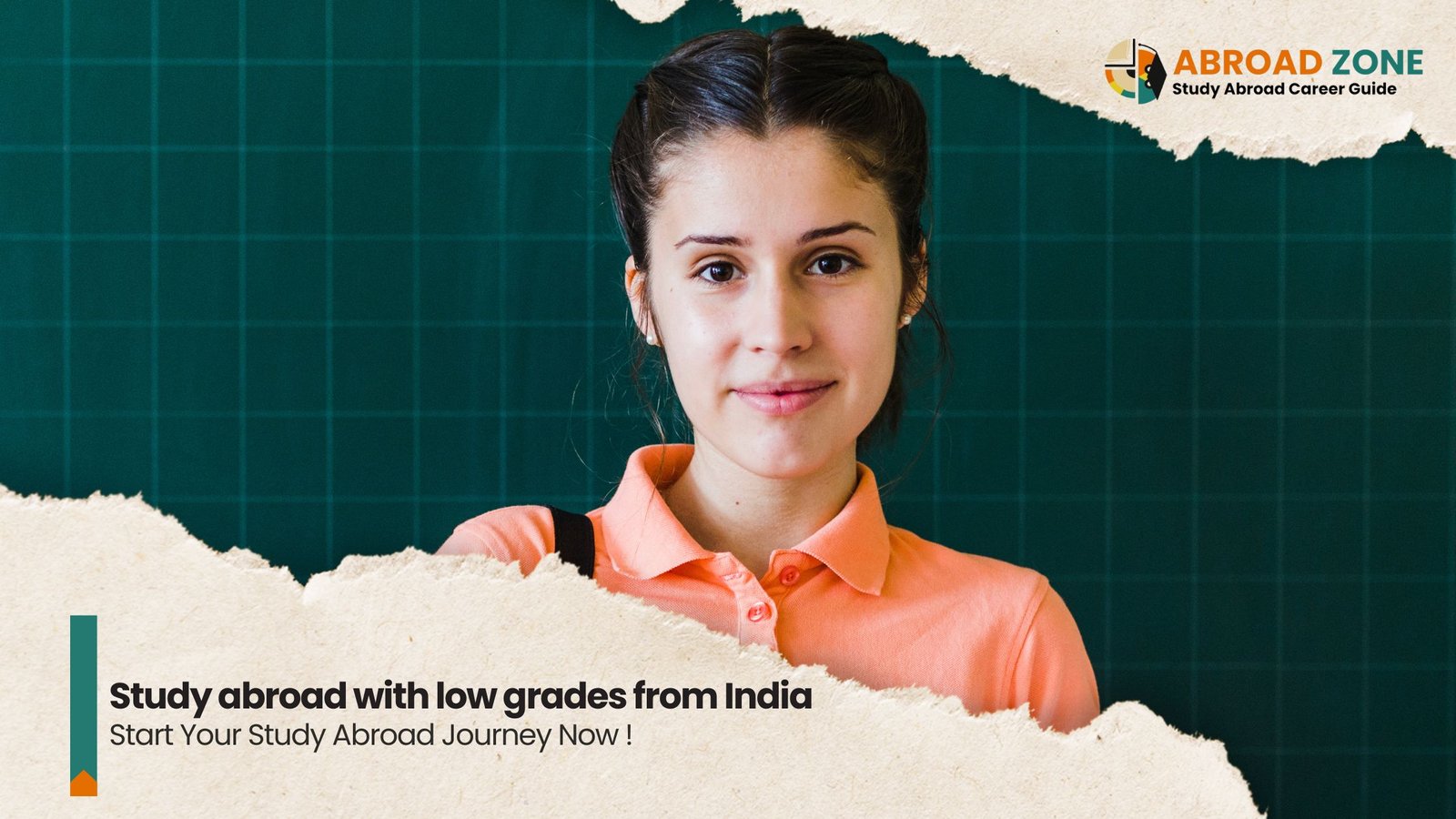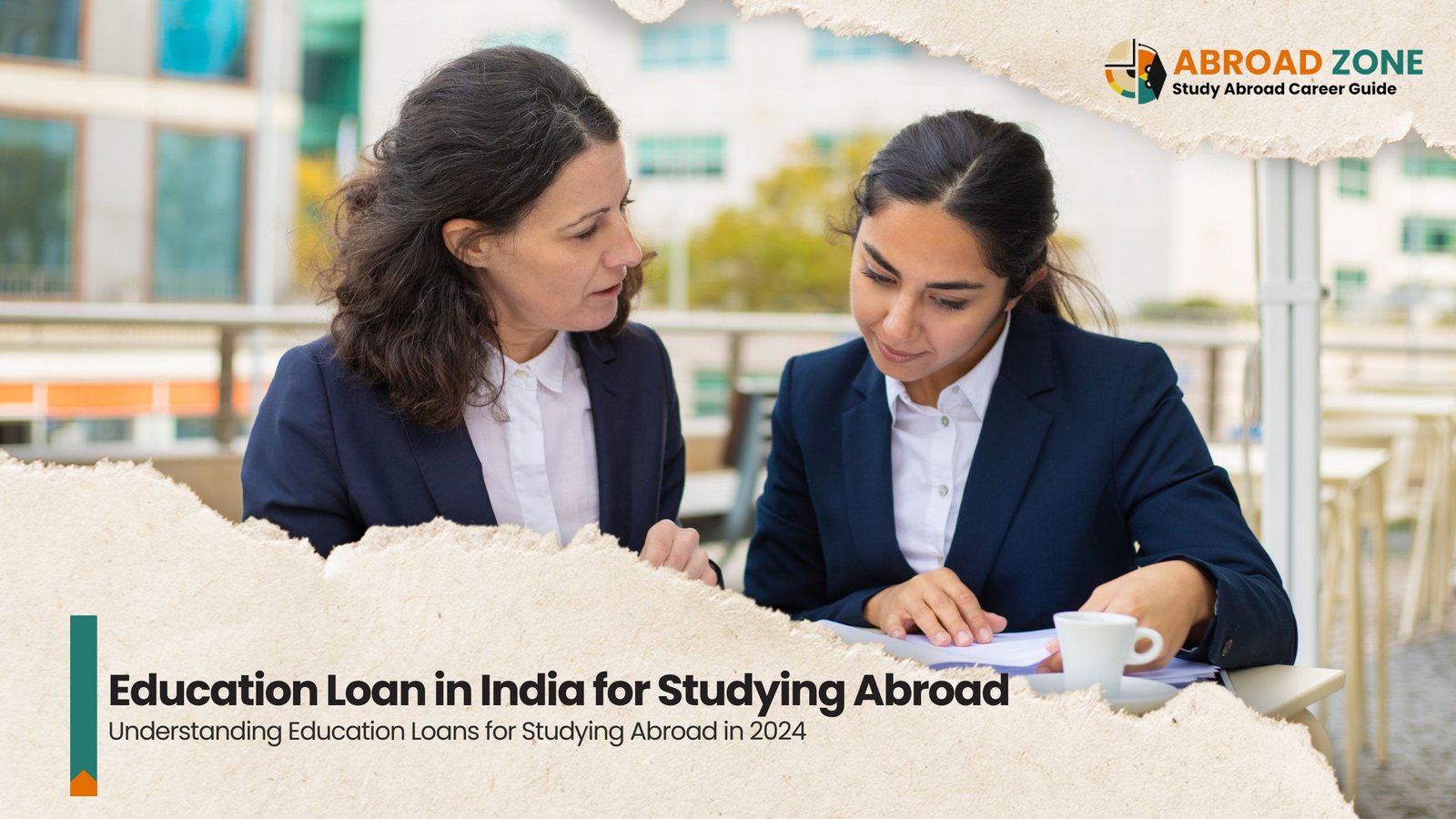Study Abroad Loan: Financing Your Foreign Education
Embarking on a journey of international education is an enriching experience, but it often comes with financial challenges. That’s where Study Abroad Loans come in, offering a lifeline to aspiring students eager to pursue their academic dreams overseas.
Understanding Study Abroad Loans:
Study Abroad Loans are specialized financial products designed to cover the expenses associated with foreign education, including tuition fees, accommodation, travel, and living expenses. These loans are offered by various financial institutions, banks, and government agencies, catering specifically to the needs of students planning to study abroad.
Key Features of Study Abroad Loans:
- Flexible Loan Amounts: Study Abroad Loans typically cover the entire cost of education, ensuring that students can focus on their studies without worrying about financial constraints.
- Competitive Interest Rates: Lenders offer competitive interest rates on Study Abroad Loans, making them an affordable option for students and their families.
- Grace Periods: Many Study Abroad Loans come with a grace period, allowing students to defer repayment until after graduation or securing employment.
- Collateral Options: Depending on the lender and loan amount, collateral may or may not be required for Study Abroad Loans.
- Co-signer Options: For students without a credit history or sufficient income, having a co-signer can increase the chances of loan approval and secure better terms.
Applying for a Study Abroad Loan:
- Research: Begin by researching different lenders and loan options available for studying abroad. Compare interest rates, repayment terms, and eligibility criteria to find the best fit for your needs.
- Documentation: Prepare all necessary documents, including proof of admission to a foreign university, financial statements, academic transcripts, and any other required paperwork.
- Loan Application: Complete the loan application process, providing accurate information and details about your educational plans.
- Review and Approval: Once your application is submitted, the lender will review your documents and assess your eligibility for the loan. Upon approval, you’ll receive a loan offer detailing the terms and conditions.
- Disbursement: After accepting the loan offer, the funds will be disbursed directly to the educational institution or deposited into your bank account as per the agreed-upon schedule.
Eligibility Criteria for Education Loan for Abroad
Before applying for an study abroad loan, it’s crucial to determine your eligibility. Here are the general eligibility criteria typically followed by banks:
- Citizenship: Applicants must be Indian nationals.
- Age: If the applicant is under 18, parents must apply for the loan on their behalf.
- Academic Record: Strong academic performance is required.
- Admission: Candidates must be accepted into a reputable overseas university, college, or institution.
- Course Type: Banks prefer job-oriented courses, particularly technical or professional ones.
- Underwriting Norms: These are standards set by loan providers to ensure the safety of loans. They determine loan approval, amount, and interest rate.
Keep in mind that individual banks may have specific eligibility guidelines. It’s essential to review these before applying.
Documents Required for Study Abroad Loan
Here’s a comprehensive list of documents typically required for applying for an education loan for Study Abroad:
- Filled Application Form: Complete and submit the loan application form provided by the lending institution.
- Photographs: Passport-size photographs of both the applicant and the co-applicant.
- Photo ID: Provide a copy of a valid photo ID for both the applicant and the co-applicant. Acceptable IDs include PAN card, driving license, Voter ID card, Aadhar Card, or Passport.
- Residence Proof: Furnish proof of residence for both the applicant and the co-applicant.
- Academic Documents:
- Admission Proof: Submit the admission letter issued by the foreign university or college confirming acceptance.
- Bank Statements: Provide bank statements for the last six months of the co-applicant to demonstrate financial stability.
- Income Proof: Furnish income proof of the co-applicant. The financial situation, location, and assets of the co-applicant influence the loan approval process.
- Collateral Documents (If Applicable):
- For collateral such as immovable property (flat, home, or non-agricultural land), the following documents are required:
- Property title deed
- Approved building plan
- No Objection Certificate (NOC) for mortgage from the builder or society.
- For collateral such as immovable property (flat, home, or non-agricultural land), the following documents are required:
Ensuring all necessary documents are in order and accurately provided can streamline the loan application process and increase the likelihood of approval for studying abroad.
Below is a table of in general requirements for obtaining an study abroad loan-
| Document Type | Description |
|---|---|
| Filled Application Form | Complete the loan application form provided by the lending institution. |
| Photographs | Passport-size photographs of both the applicant and the co-applicant. |
| Photo ID | Provide a copy of a valid photo ID for both the applicant and the co-applicant (e.g., PAN card, driving license, Voter ID card, Aadhar Card, or Passport). |
| Residence Proof | Furnish proof of residence for both the applicant and the co-applicant. |
| Academic Documents | Academic transcripts and certificates of the applicant. |
| Scores reports of standardized tests like,GRE, GMAT TOEFL, IELTS, etc., if applicable. | |
| Admission Proof | Submit the admission letter issued by the foreign university or college confirming acceptance. |
| Bank Statements | Provide bank statements for the last six months of the co-applicant to demonstrate financial stability. |
| Income Proof | Furnish income proof of the co-applicant. |
| Collateral Documents (If Applicable) | For collateral such as immovable property (flat, home, or non-agricultural land): |
| – Property title deed | |
| – Approved building plan | |
| – No Objection Certificate (NOC) for mortgage from the builder or society. |
Technical and Legal Documentation for Study Abroad Education Loan
Technical Documentation
| Technical Documentation | Description |
|---|---|
| Title Deed | Attach all pages of the title deed. |
| Approved Layout Plan and Permissions (if applicable) | Provide copies of approved layout plans and permissions, if applicable. |
| Revenue Document | Include relevant revenue documents |
| BDA Allotment – NOC and Allotment Letter | Submit documents related to Bangalore Development Authority (BDA) allotment, including NOC and allotment letter. |
| Non-Encumbrance Certificate | Obtain a certificate indicating the property’s clear legal status. |
| Possession Certificate | Required if the property is acquired from a builder. |
| Latest Property Tax Receipt | Provide proof of property tax payment. |
| Copy of Prior Sale Deeds | Include copies of previous sale deeds. |
| Conversion Certificate | If applicable, provide a certificate confirming land use conversion. |
| Urban Clearance Certificate (if applicable) | Required in specific cases, provide urban clearance certificate. |
Legal Documentation
| Legal Documentation | Description |
|---|---|
| Sale/Gift/Partition Deed | Minimum 13 years of relevant documentation for sale, gift, or partition deeds. |
| Khata Certificate and Extract | Provide in the name of the current owner. |
| Encumbrance Certificate | Minimum 13 years reflecting all sale transactions. |
| Latest Property Tax Receipt | Proof of current property tax payment. |
Ensuring the completion and accuracy of these technical and legal documents is essential for a smooth student loan application process.
Some of the Education Loan Providers in India for Study Abroad Education
Axis Bank Study Abroad Loan
| Category | Details |
|---|---|
| Interest Rate | Starting from 13.70% p.a. |
| Maximum Loan Amount | Rs.20 lakh |
| Maximum Tenure | Up to 15 years |
| Processing Fees | Determined by the bank |
State Bank Of India (SBI) Study Abroad Loan
| Category | Details |
|---|---|
| Interest Rate | From 8.15% p.a. onwards |
| Maximum Loan Amount | Up to Rs.1.5 crore |
| Maximum Tenure | Up to 15 years |
| Processing Fees | Rs.10,000 |
Bank of Baroda Study Abroad Loan
| Category | Details |
|---|---|
| Interest Rate | Starting from 8.55% p.a. |
| Maximum Loan Amount | Up to Rs.80 lakh |
| Maximum Tenure | Up to 15 years |
| Processing Fees | Nil |
Punjab National Bank (PNB) Study Abroad Loan
| Category | Details |
|---|---|
| Interest Rate | 10.00% p.a. to 10.75% p.a. |
| Maximum Loan Amount | As per requirement, based on repayment capacity |
| Maximum Tenure | Up to 15 years |
| Processing Fees | 1% of the loan amount, minimum Rs.10,000 |
Canara Bank Study Abroad Loan
| Category | Details |
|---|---|
| Interest Rate | 9.25% p.a. |
| Maximum Loan Amount | As per eligibility |
| Maximum Tenure | Up to 15 years |
| Processing Fees | Nil |
Key Attributes of Study Abroad Education Loans
- Individuals aged between 18 and 35 years have the opportunity to access education loans tailored for pursuing studies at recognized international universities.
- These loans cater to a diverse range of academic pursuits, encompassing graduate and postgraduate degrees spanning fields such as management, engineering, medicine, arts, architecture, pure science, and hospitality management, among others.
- Covered expenses include tuition fees, examination fees, laboratory and library charges, caution deposits, travel costs, academic materials like books and equipment, as well as expenses related to projects and educational excursions.
- Borrowers are typically required to contribute a margin ranging from 5% to 15% for loans intended for overseas education.
- Interest accrual commences during the moratorium period, with the principal repayment obligation beginning upon the loan’s commencement.
- Repayment modalities usually involve monthly installments facilitated through Electronic Clearing Service (ECS) or via post-dated cheques.
- Loan tenures, inclusive of the moratorium period, commonly extend up to seven years, varying across lending institutions.
- Co-applicants are mandated for full-time course loans, with eligibility extending to siblings, spouses, parents, or other familial relations.
- Loan amounts may reach a maximum cap, with variations based on the presence or absence of a moratorium period.
- Certain lenders extend collateral-free options for loans below a specified threshold, with larger loan amounts necessitating collateral or security.
- Additionally, the Central Government extends an interest rate subsidy initiative during the moratorium period, primarily aimed at supporting financially vulnerable segments of society.
FAQs on Studying Abroad Education Loan India
- Who is eligible to apply for an education loan for studying abroad?
- Typically, Indian residents aged between 18 and 35 years are eligible to apply for education loans for pursuing higher studies abroad.
- What expenses does an education loan cover for studying abroad?
- Education loans usually cover a wide range of expenses including tuition fees, examination fees, living expenses, accommodation charges, travel expenses, and other related costs.
- Do I need collateral to secure an education loan for studying abroad?
- Collateral requirements vary among lenders. Some banks offer education loans without requiring collateral for smaller loan amounts, while larger loans may require collateral or security.
- How much loan amount can I avail for studying abroad?
- The loan amount typically depends on various factors including the course fees, living expenses, and the repayment capacity of the borrower. Banks usually have a maximum loan limit which may vary from bank to bank.
- What is the interest rate charged on education loans for studying abroad?
- Interest rates on education loans can vary depending on the lender, the loan amount, and the borrower’s creditworthiness. It’s advisable to compare interest rates from different banks before applying.
- How do I repay the education loan for studying abroad?
- Repayment of education loans usually begins after the completion of the course or after the moratorium period. Repayment can be made in monthly installments through ECS (Electronic Clearing Service) or post-dated cheques.
- Is there any subsidy or assistance available for education loans?
- The Central Government offers various schemes and subsidies to support education loans, especially for economically weaker sections. These schemes may include interest rate subsidies or repayment assistance during the moratorium period.
- What documents are required to apply for an education loan for studying abroad?
- Commonly required documents include admission letter from the institution, mark sheets, identity proof, address proof, income proof of the co-applicant, and collateral documents if applicable.
- Can I prepay or foreclose the education loan?
- Yes, many banks allow prepayment or foreclosure of education loans without any penalty. However, it’s advisable to check the terms and conditions of the loan agreement with your lender.
- What happens if I face difficulty in repaying the education loan?
- If you encounter difficulty in repaying the loan, you should immediately contact your lender to discuss possible solutions such as loan restructuring or alternative repayment plans. It’s important to communicate with the bank to avoid defaulting on the loan.













